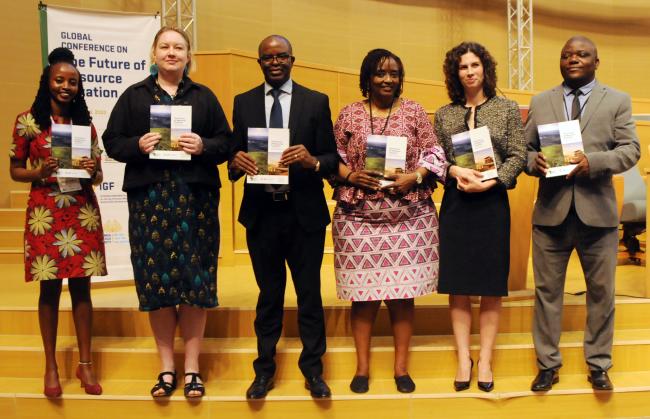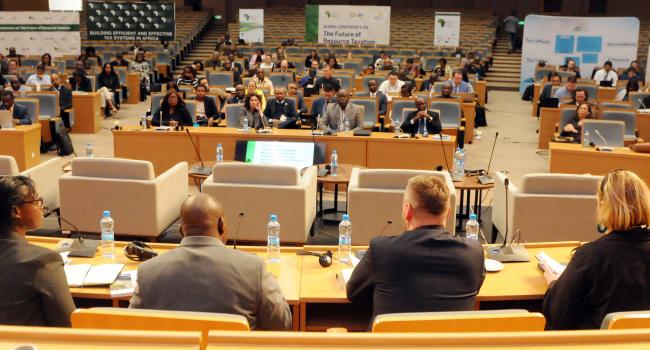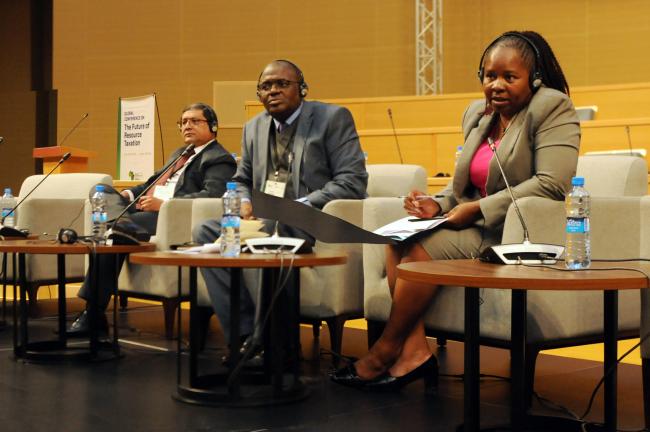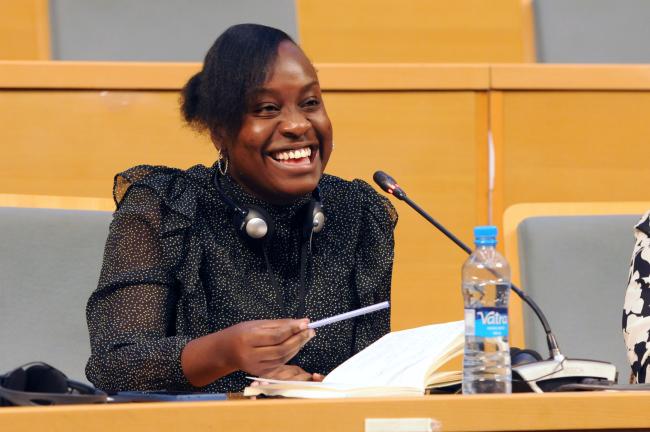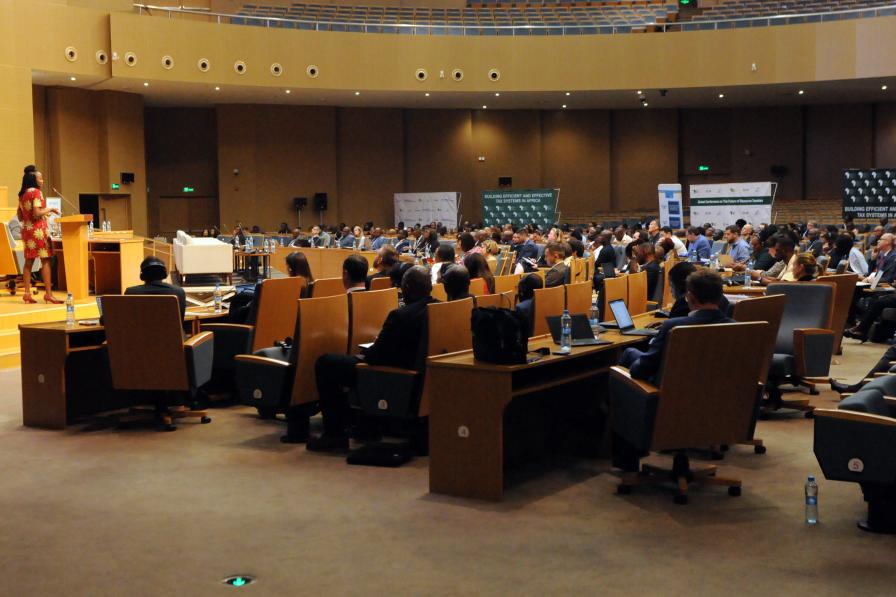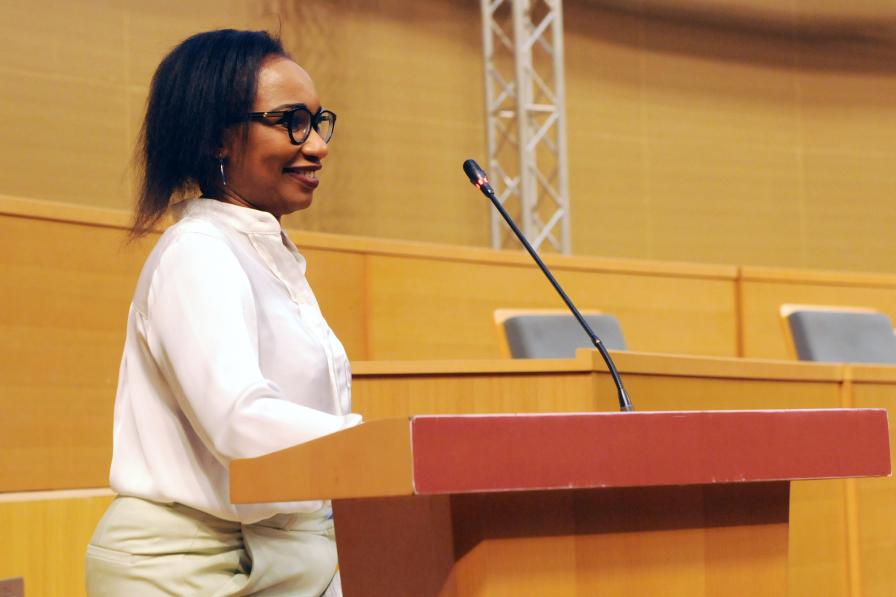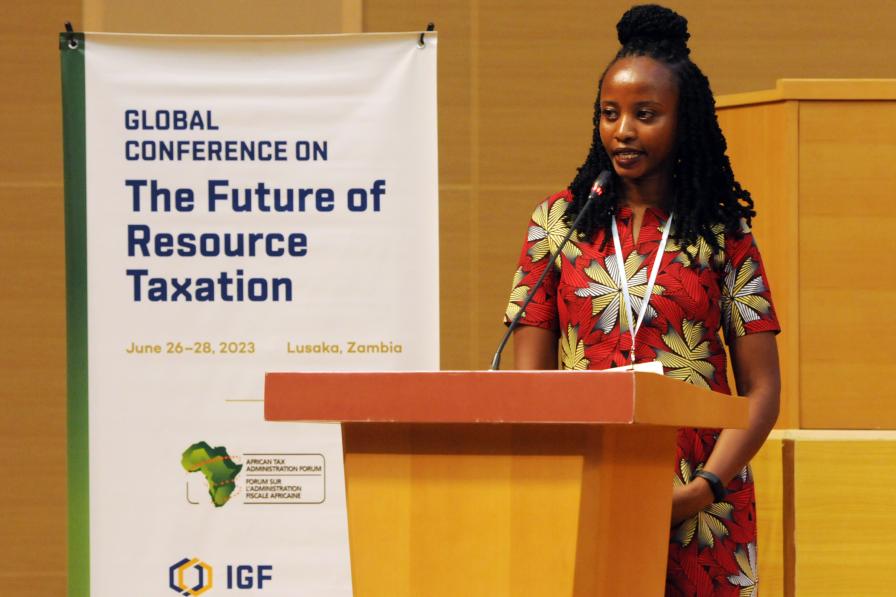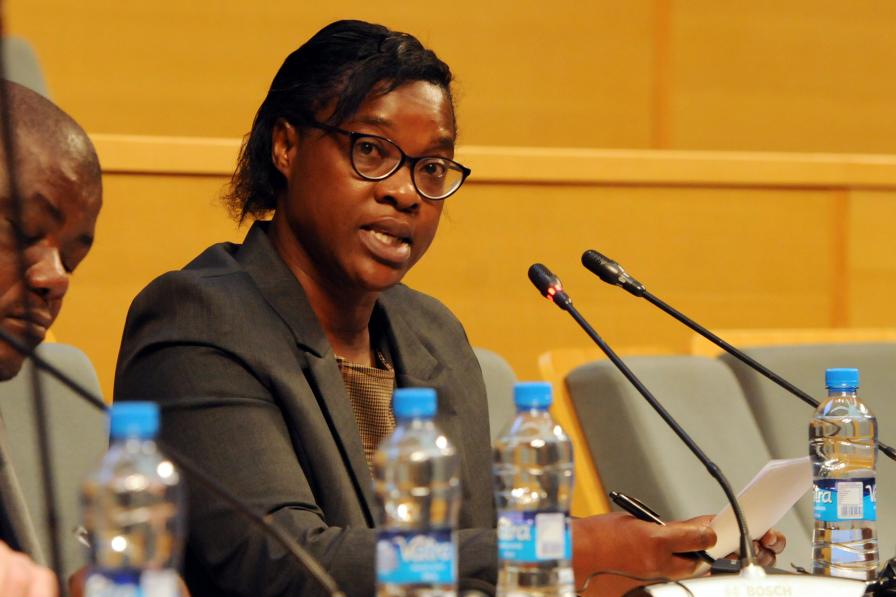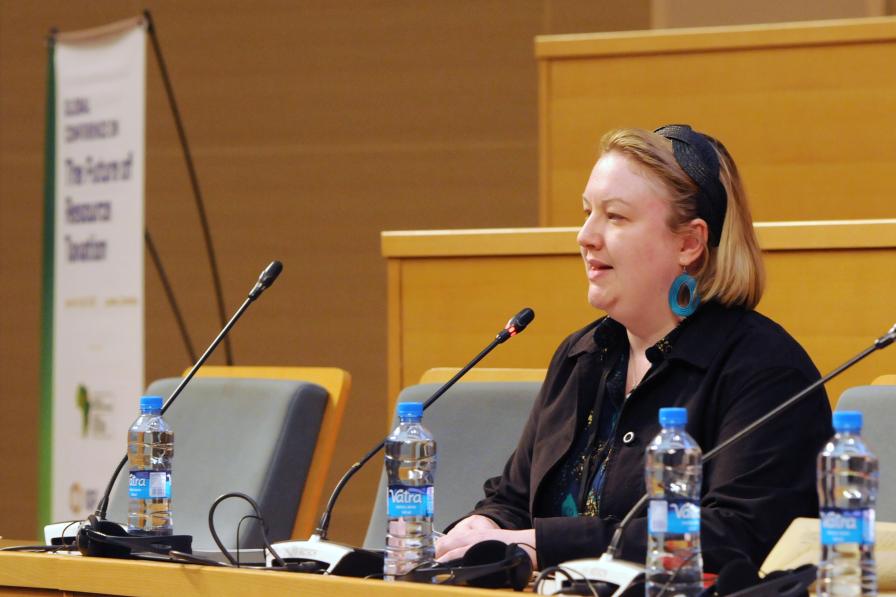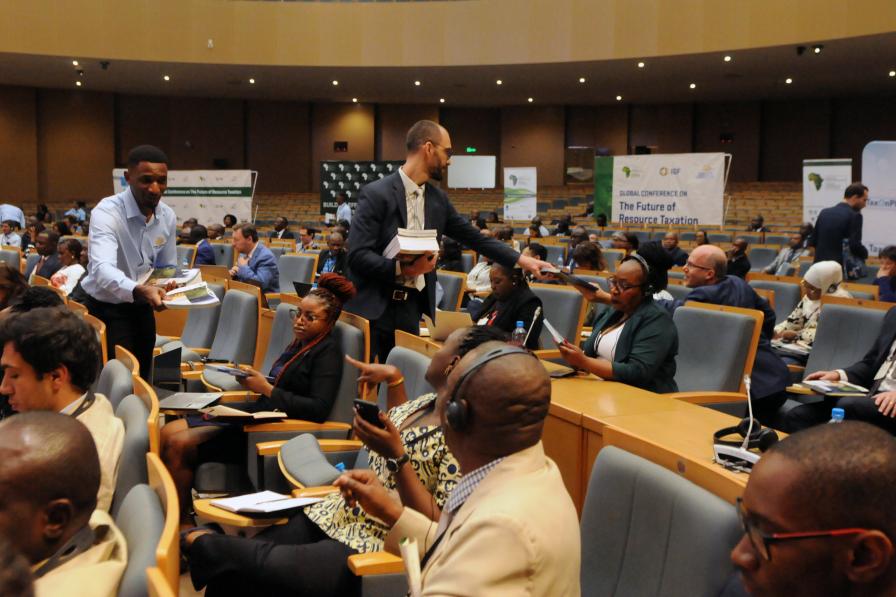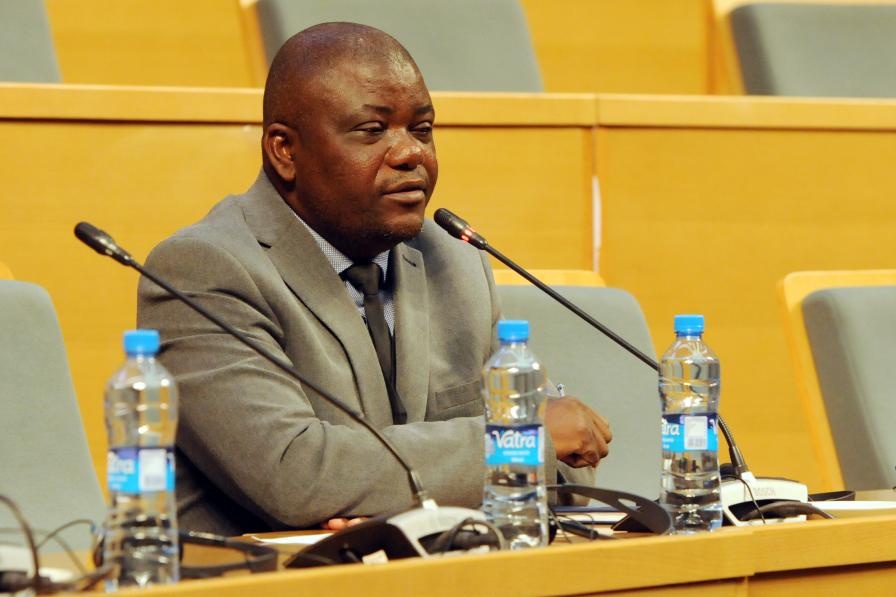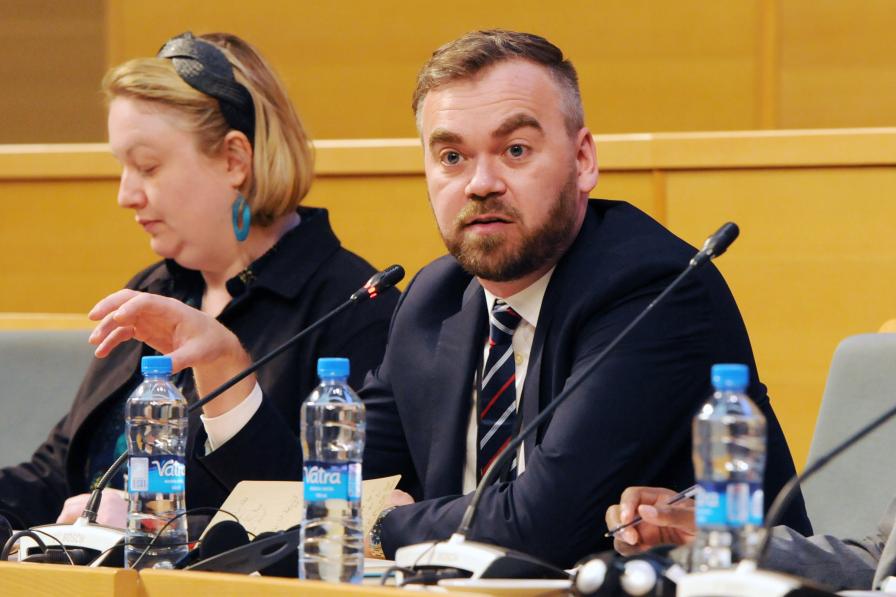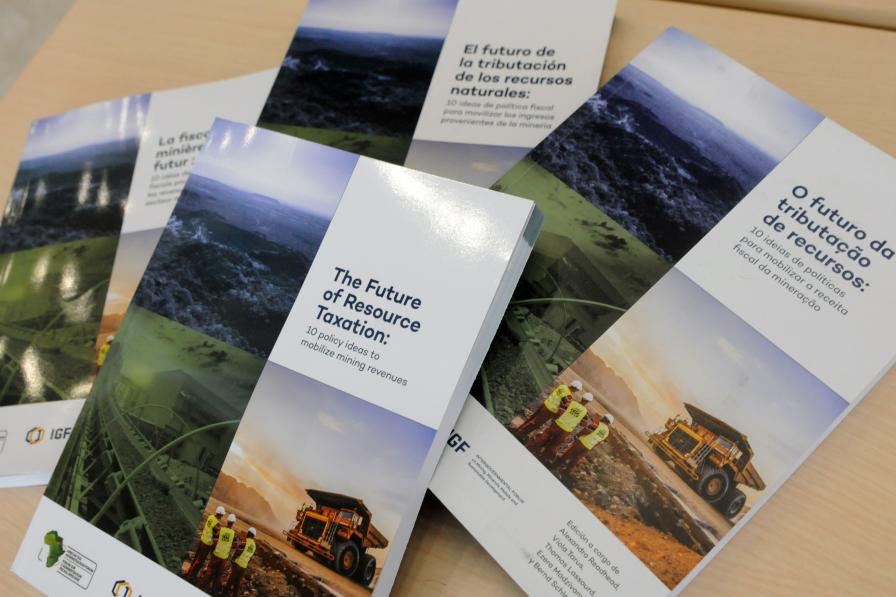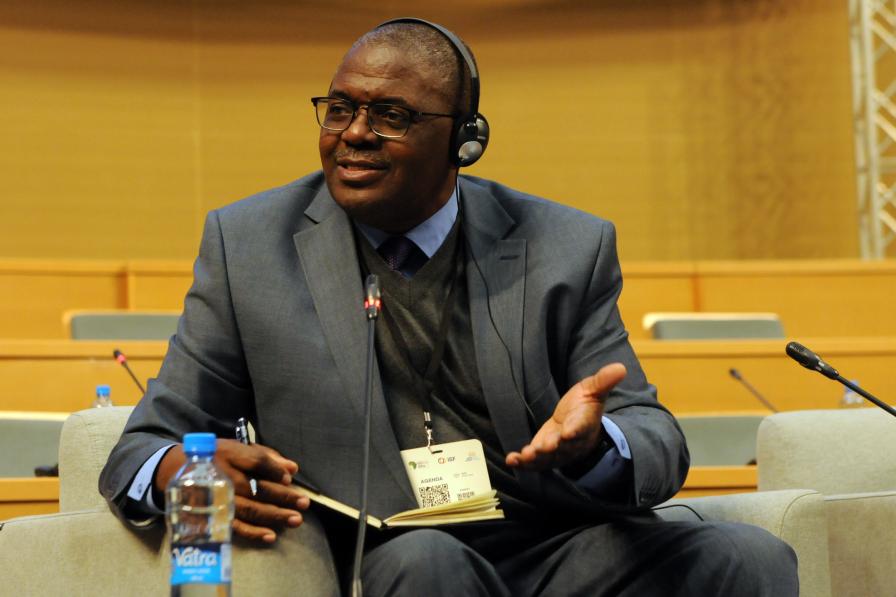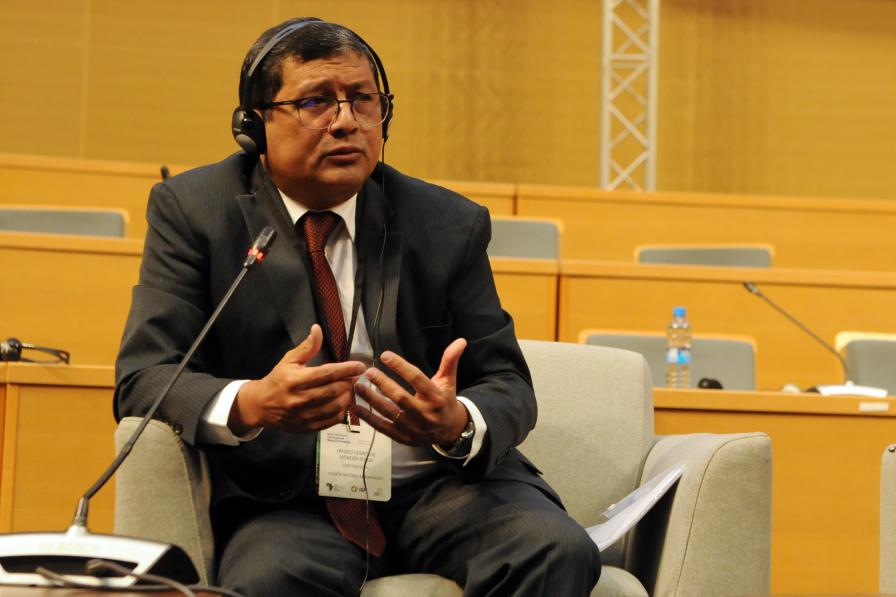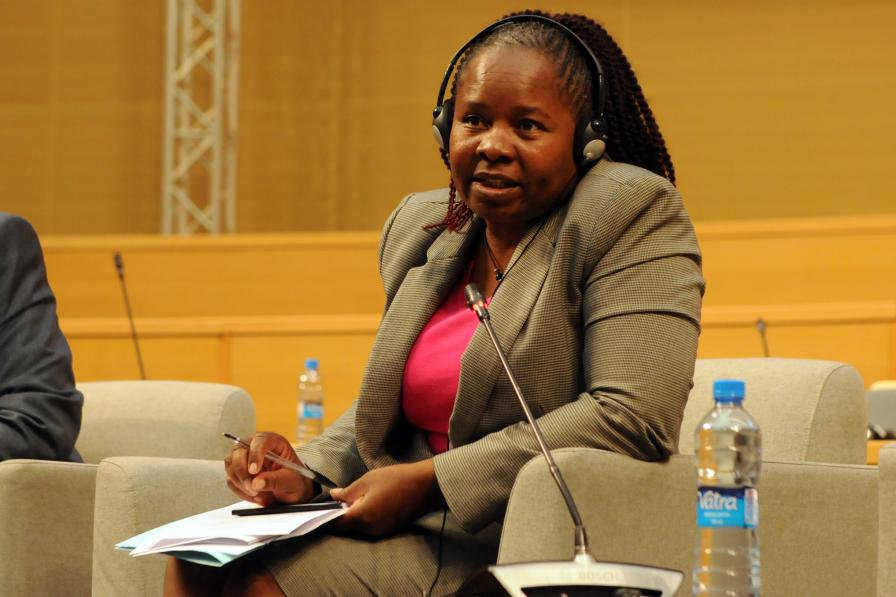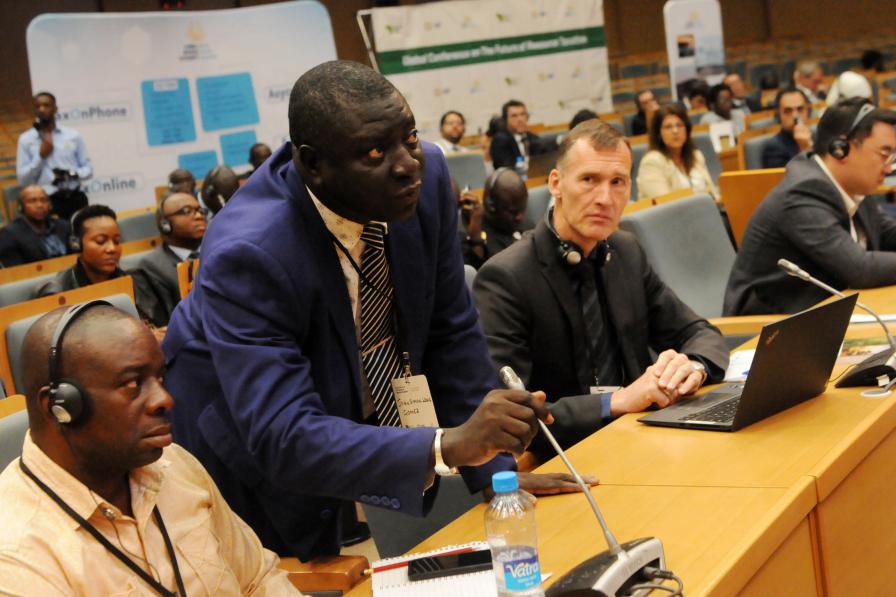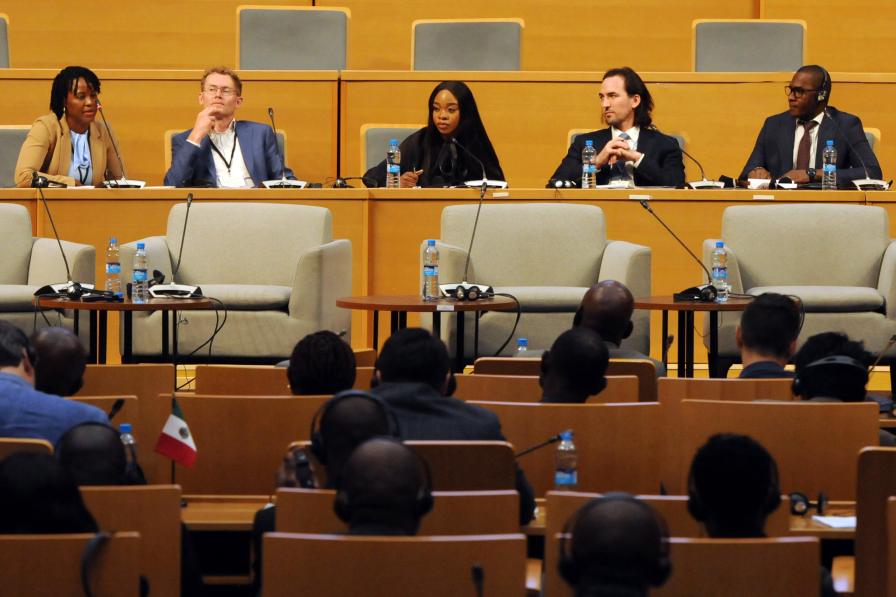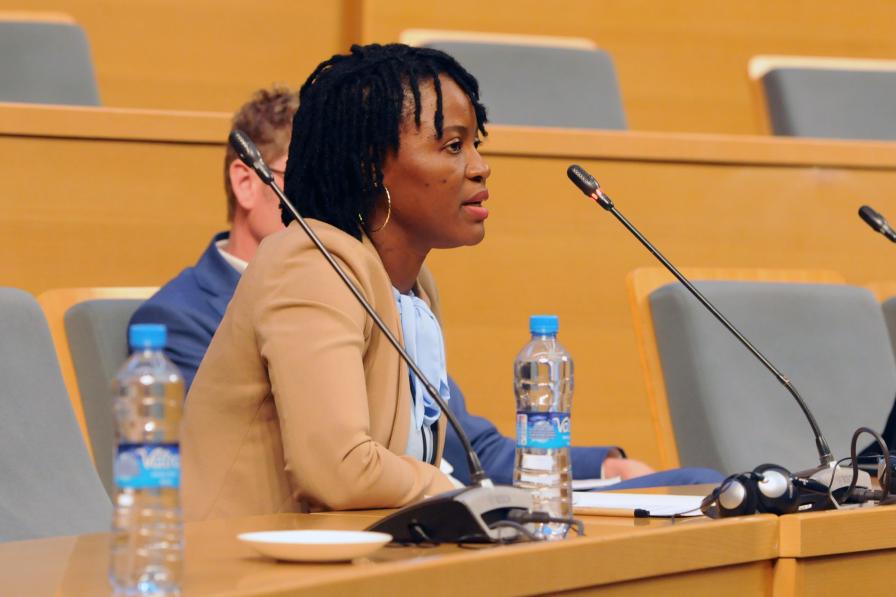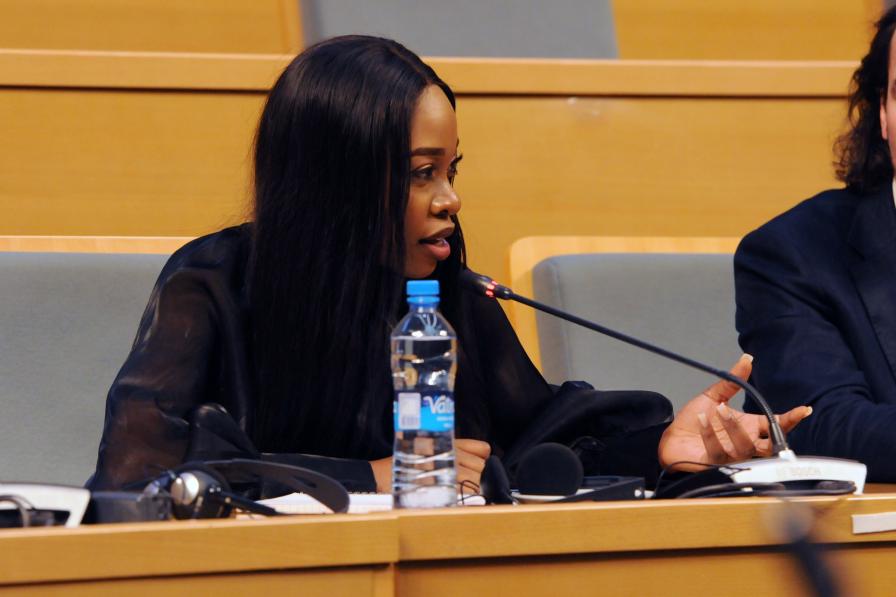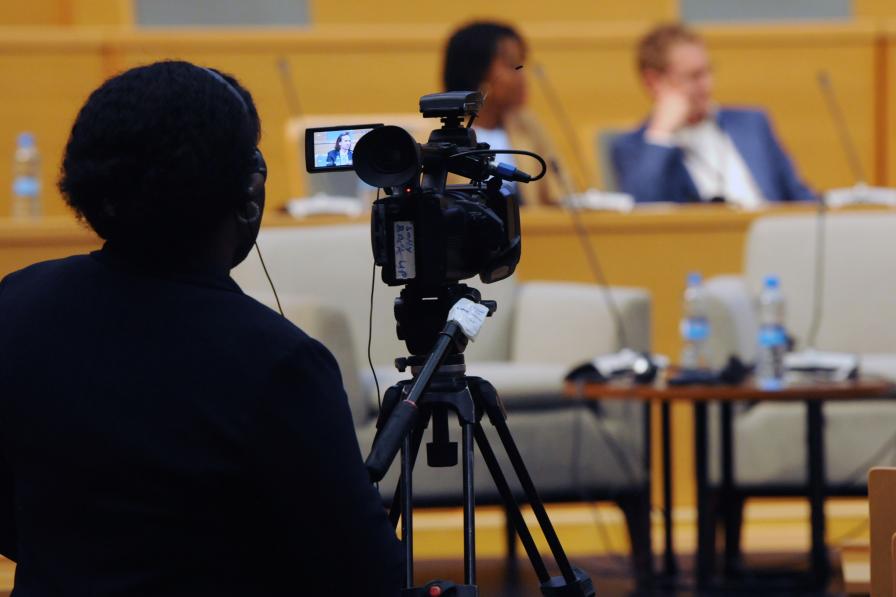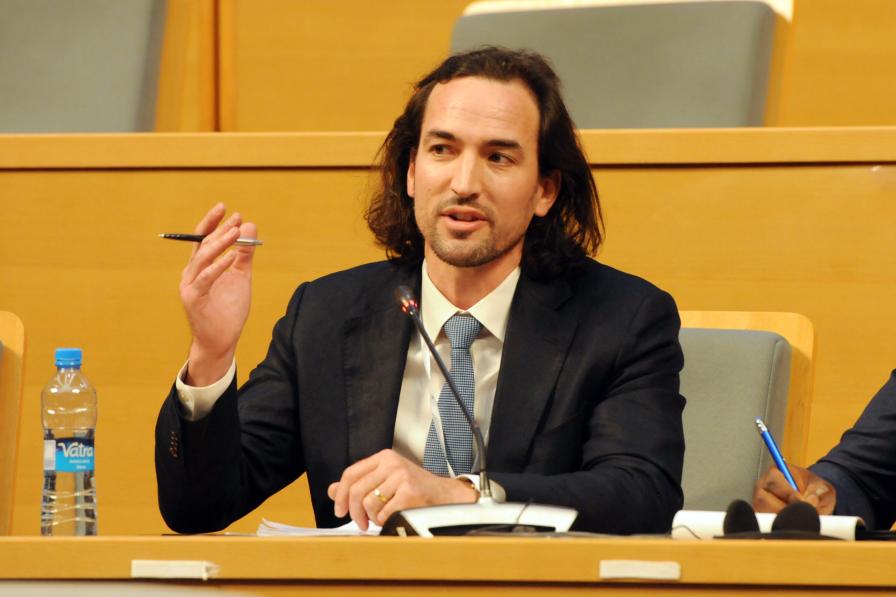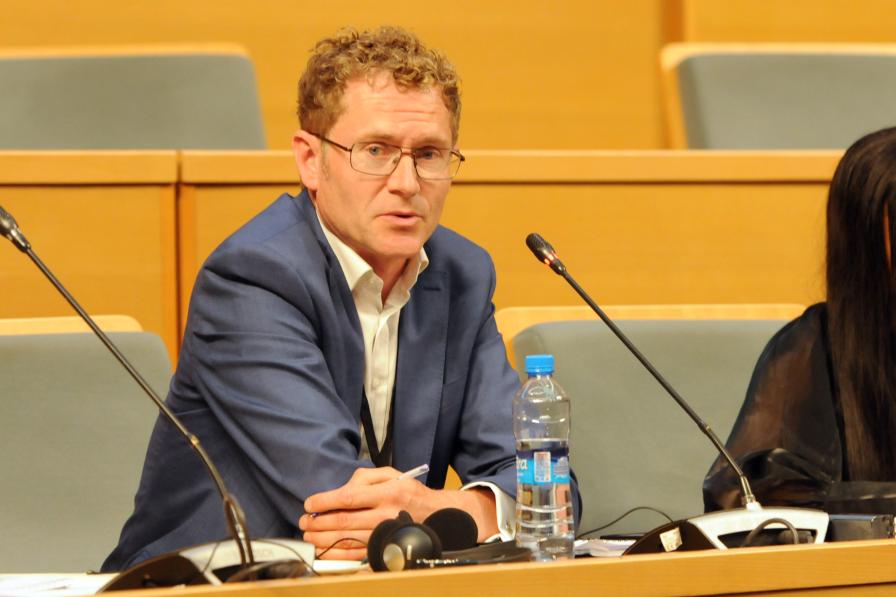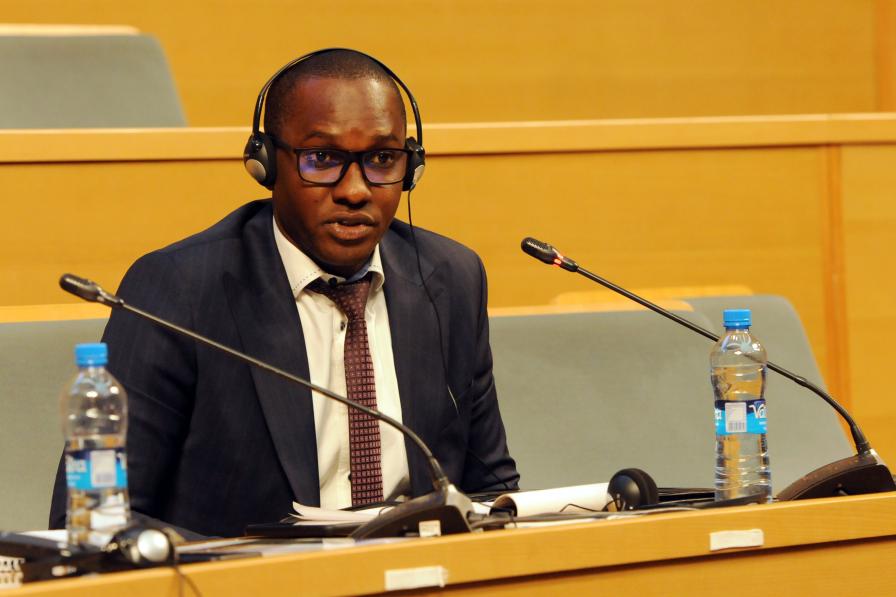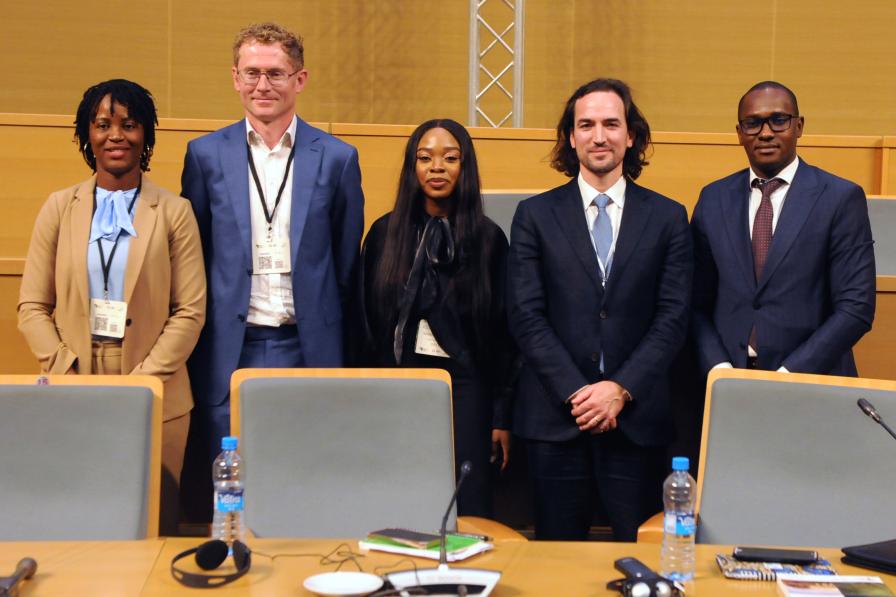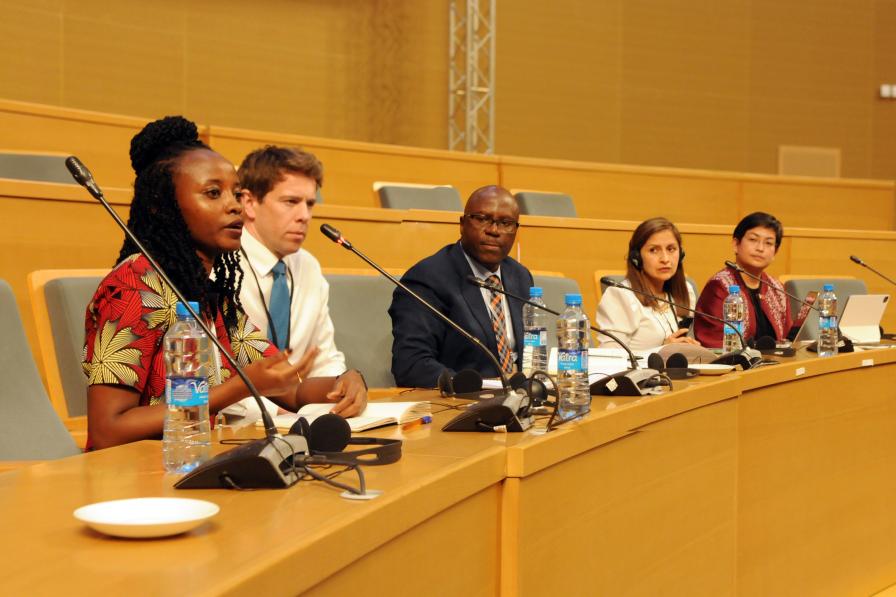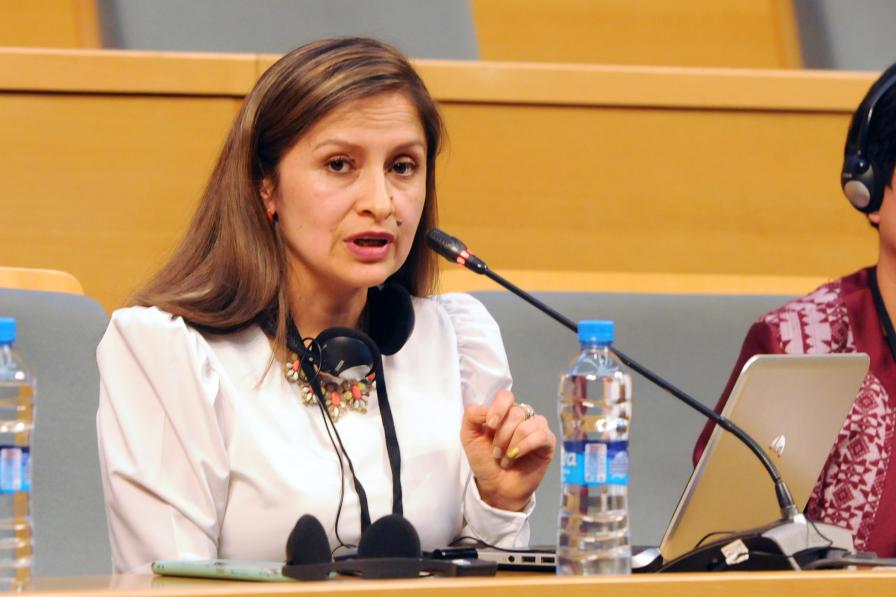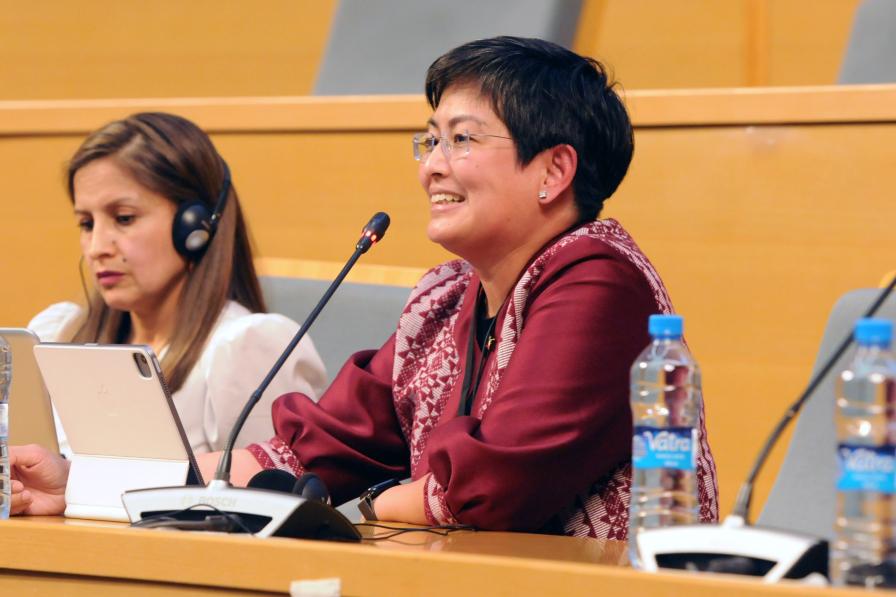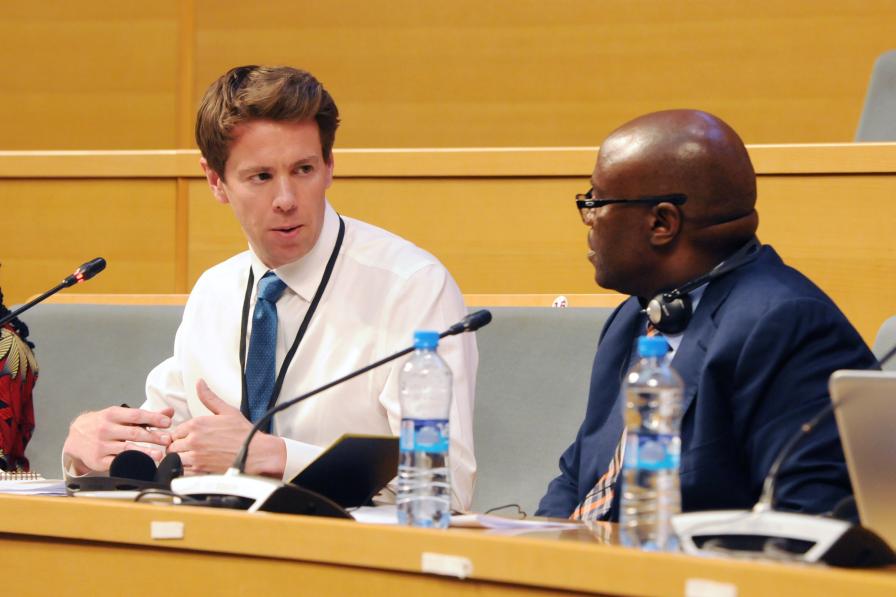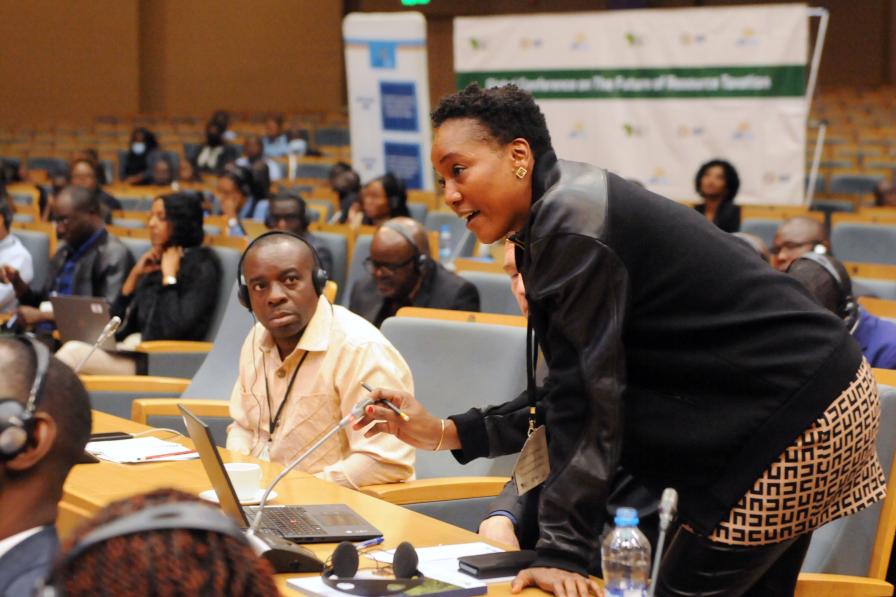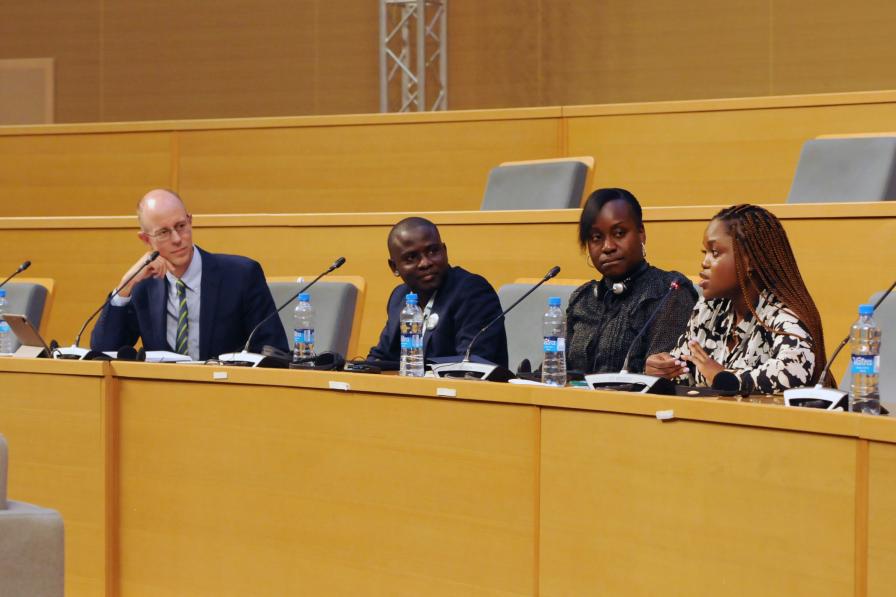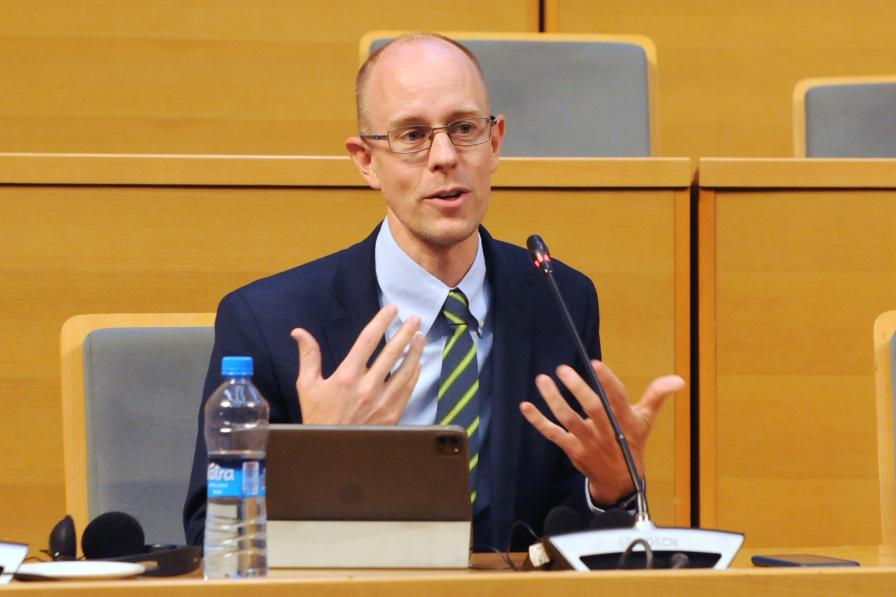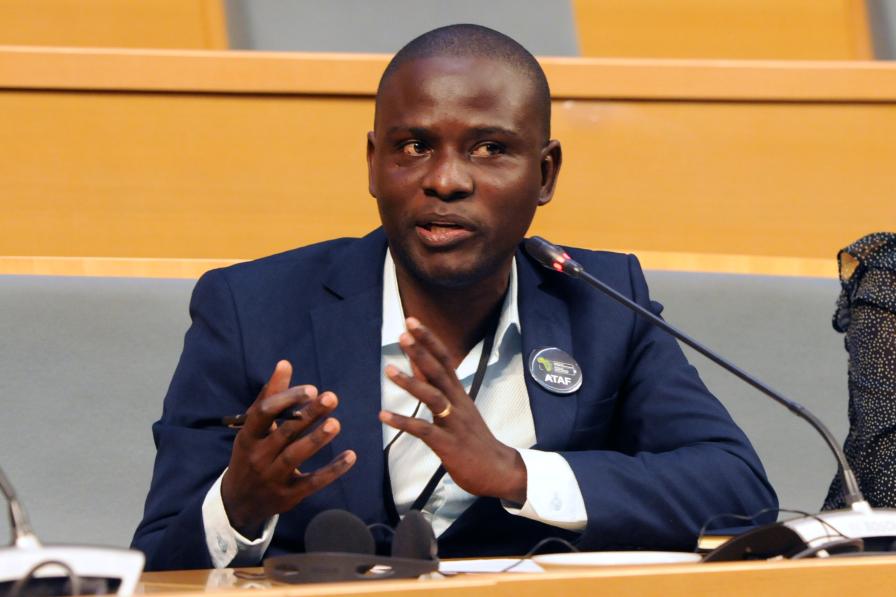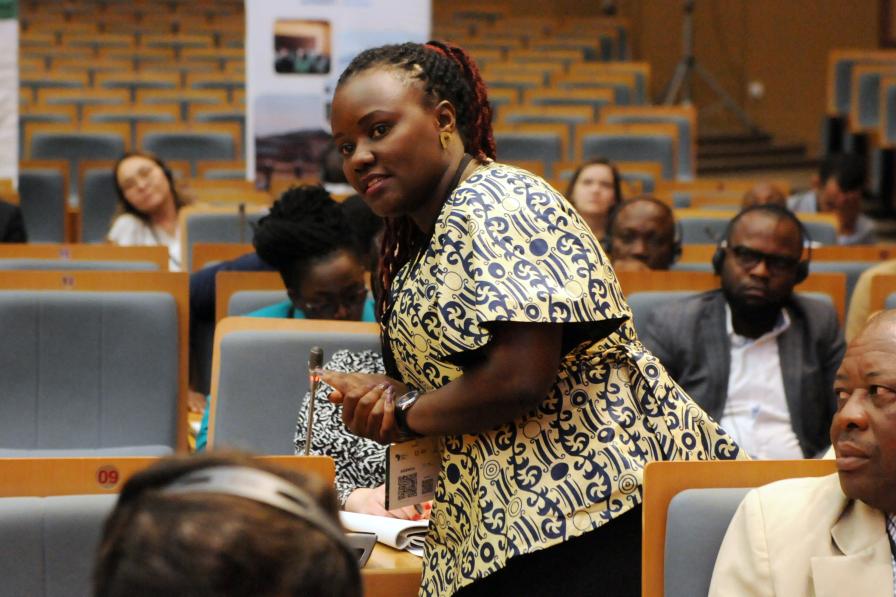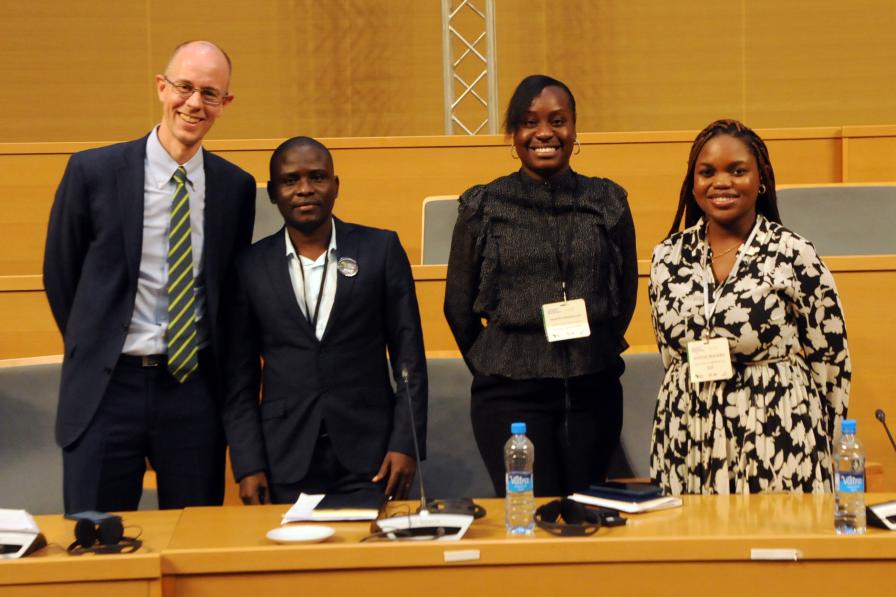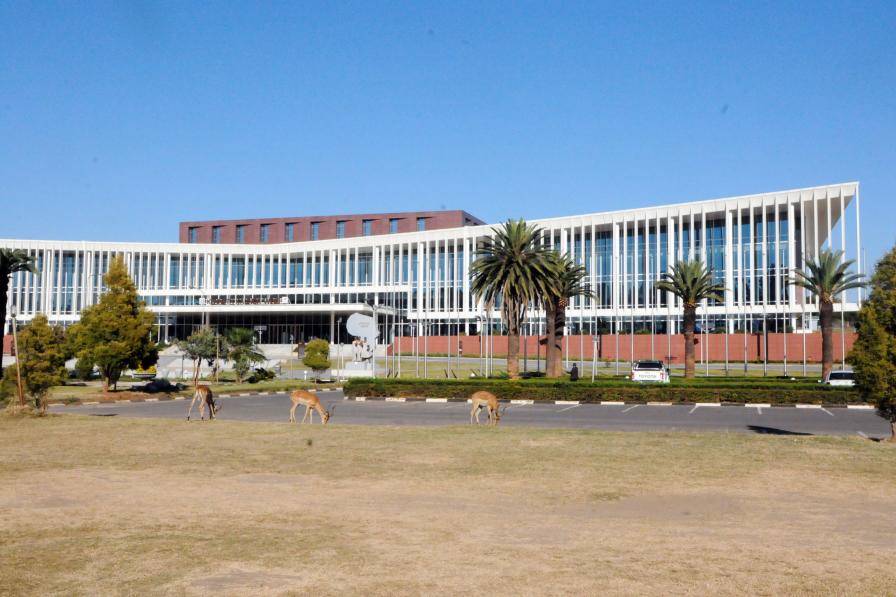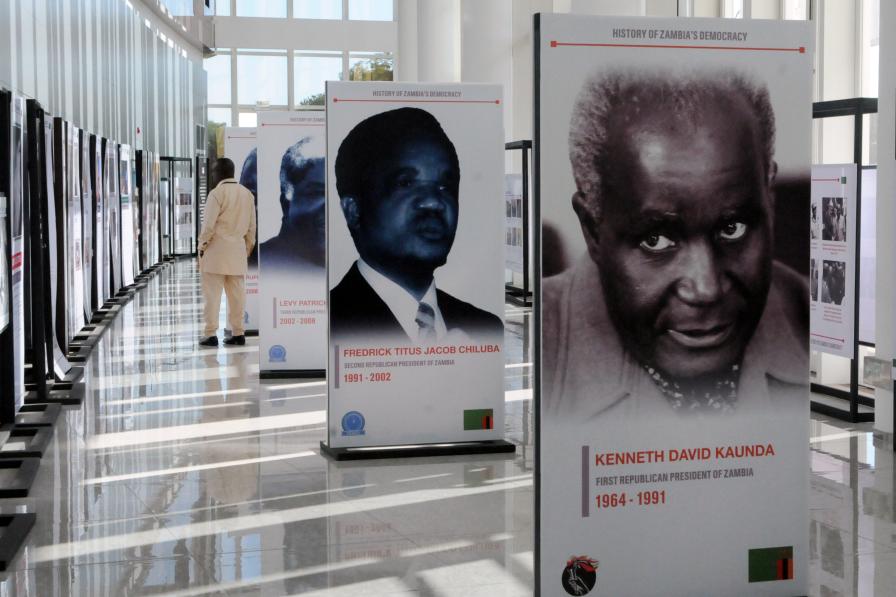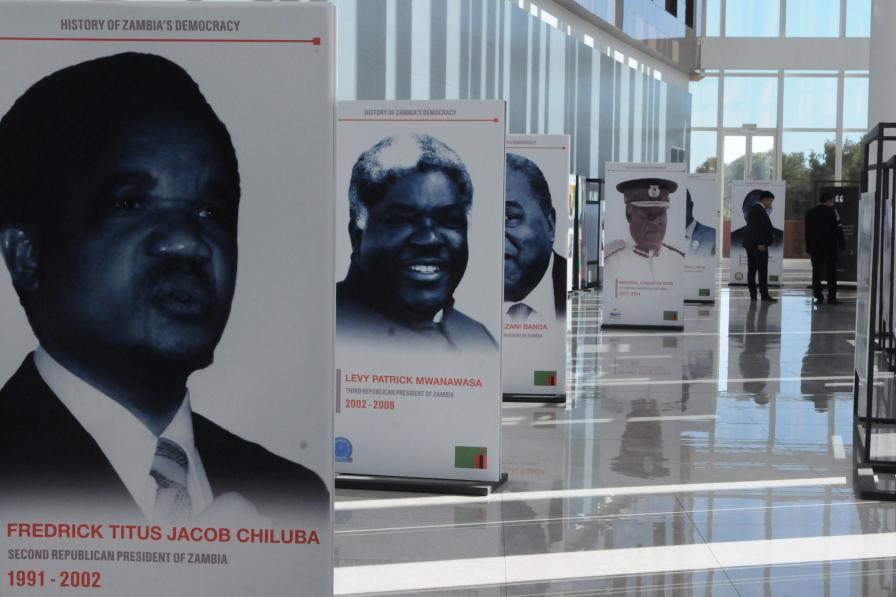Participants attending the Global Conference on the Future of Resource Taxation began the second day in a festive mood with the launch of the Handbook on The Future of Resource Taxation: 10 policy ideas to mobilize mining revenues. The Handbook was the result of of a collaboration between the African Tax Administration Forum (ATAF) and the Intergovernmental Forum on Mining, Minerals, Metals and Sustainability (IGF), and all conference participants received a copy in the language of their choice, that is English, French, Spanish, and Portuguese.
Viola Tarus, Policy Advisor, IGF, presented the 10 ideas developed through a process of multisectoral and participatory approaches that included both government and non-governmental stakeholders. These ideas explore:
- whether the minimum profit share for government model represents an improvement on the dominant fiscal regime based on royalties and corporate income tax;
- how to design and implement production-sharing contracts;
- practical implementation of state equity participation;
- what to consider when introducing, expanding or reforming commercial state-owned enterprises;
- comparative experiences with the use of variable royalties as an answer to volatile mineral prices;
- how to use the “Sixth Method” developed in Latin America as a clear and transparent standard for harder-to-price minerals;
- the potential impact of the EU’s carbon-border adjustment mechanism on mineral-rich low- and middle-income countries;
- options for securing a fair share for communities using government-administered mining development taxes;
- necessary conditions for implementing competitive bidding to allocate mining licenses and increase government revenues; and
- improving the monitoring of quarry production with remote monitoring technologies.
Presiding over the official launch of the Handbook, Dingani Banda, Commissioner General, Zambia Revenue Authority, called it a huge milestone to effectively tax valuable resources. He expressed hope that the ideas captured in the Handbook will be sustained in order to “reverse the curse of the plenty.”
The launch was followed by a Fireside Chat moderated by Oliver Maponga, Economic Commission for Africa. Panelists Lilian Bwalya, Permanent Secretary, Ministry of Commerce, Trade, and Industry, Zambia, and Mauro Sousa, Director General, National Mining Agency, Brazil, shared experiences from their countries on how they increased social benefits through value addition in the mining sector.
This was followed by a session on price volatility, opaque value chains and transfer mispricing, and how these challenges can be addressed through appropriate legislation that considers uncertainty. The interactive discussions explored various fiscal policy and administrative solutions to ensure progressive, predictable government revenues.
In the afternoon, participants explored new models of financial benefit sharing modeled on the oil and gas sector, with panelists highlighting innovative tax regimes developed in the Philippines and Ecuador as well as a perspective on how industry assesses investment risks.
The day concluded with an animated session focusing on the social license to operate that highlighted diverse experiences of communities living adjacent to mining operations and how to ensure the energy transition will indeed be “just” through directly benefitting these communities. The session’s conclusions highlighted:
- the need for good implementation backed by monitoring;
- establishing how revenues are used and decisions are made while ensuring that communities are well informed;
- the need to build economic opportunity for community members; and
- mitigating harm to people and environmental damage.
To receive free coverage of global environmental events delivered to your inbox, subscribe to the ENB Update newsletter.
All ENB photos are free to use with attribution. For the Global Conference on the Future of Resource Taxation, please use: Photo by IISD/ENB | Diego Noguera
The Future of Resource Taxation: 10 Policy Ideas to Mobilize Mining Revenues
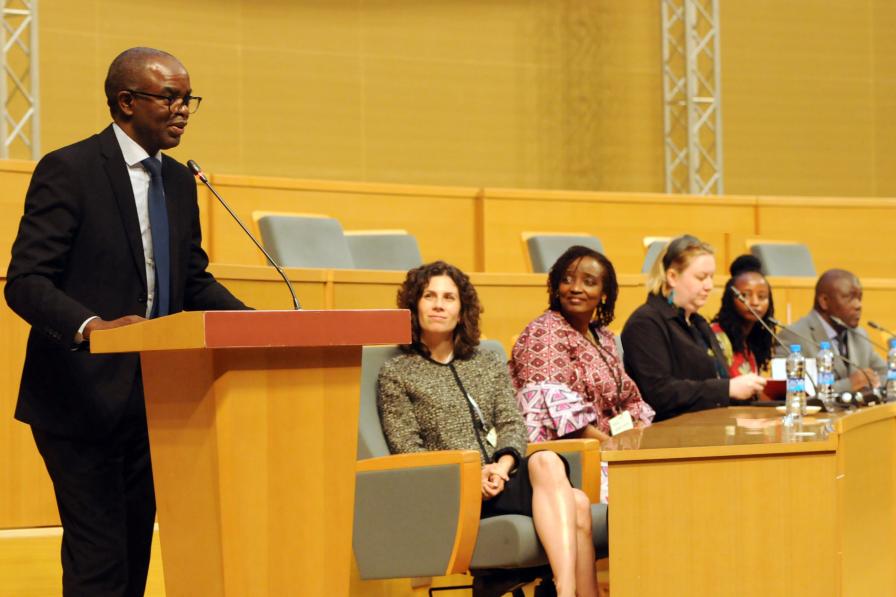
Dingani Banda, Commissioner General, Zambia Revenue Authority, officially launches 'The Future of Resource Taxation: 10 Policy Ideas to Mobilize Mining Revenues.'

